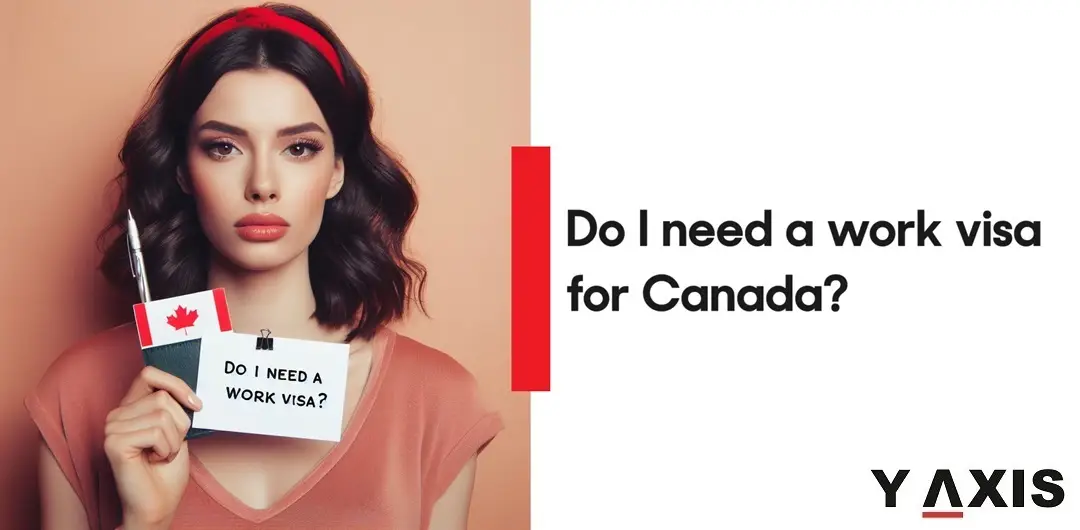Posted on November 27 2023
Do I need a work visa for Canada?
By , Editor
Updated January 18 2026
Introduction
Canada has become a top-notch country for people willing to work in other countries. Employees enjoy top-notch healthcare, paid time off, and holidays, encompassing parental and maternal leaves. The Canadian culture is renowned for its inclusivity, warmly welcoming all newcomers. The country is celebrated for its breathtaking scenery and is particularly well-known for its passion for ice hockey.
This comprehensive guide will walk you through the step-by-step process, fees, timelines, and required documents, offering valuable insights into the advantages of working in Canada compared to India.
Section 1: Understanding the Basics
1.1 What is a Work Visa?
A work visa, also known as a work permit, is a legal document that authorizes a foreign national to work in Canada for a specified period. There are two main types: employer-specific and open work permits.
1.2 Types of Work Permits
1.2.1 Employer-Specific Work Permits
These permits are tailored to a specific employer and include conditions such as the employer's name, the duration of employment, and the location of work.
1.2.2 Open Work Permits
Open work permits provide flexibility, allowing individuals to work for any employer in Canada, excluding those listed as ineligible.
Section 2: Step-by-Step Process
2.1 Determine the Type of Work Permit You Need
Identify whether you require an employer-specific or open work permit based on your employment needs and preferences.
2.2 Obtain a Job Offer
Before applying for a work permit, secure a job offer from a Canadian employer. This offer should include a copy of your employment contract and either a Labour Market Impact Assessment (LMIA) or an offer of employment number for LMIA-exempt workers.
2.3 Gather Required Documents
Compile a comprehensive set of documents, including identification, educational qualifications, proof of work experience, language proficiency test results, and a valid job offer letter.
2.4 Apply for the Work Permit
Navigate the online application process, answering specific questions to create a personalized document checklist tailored to your circumstances.
2.5 Pay the Fees
Ensure all applicable fees are paid, including the work permit fee ($155) and the additional fee for open work permits ($100).
Section 3: Fees
3.1 Work Permit Fee
The work permit fee is $155 per person, a crucial investment in your Canadian work journey.
3.2 Open Work Permit Holder Fee
Applicable to open work permits, this additional fee of $100 enhances flexibility in employment options.
3.3 Processing Fees
Additional processing fees may be applicable for each applicant and dependents included in the application.
Section 4: Timelines
4.1 Processing Time
The processing time for Canadian work permits typically ranges from 1 to 9 months. Applicants within Canada may experience a faster turnaround (up to 4 weeks), while those applying from outside Canada should expect a processing time of 5-6 months.
Section 5: Advantages of Working in Canada vs India
|
Aspect |
Canada |
India |
|
Job Searching and Networking |
Easier networking; references play a major role in hiring |
Networking can be challenging; hiring often relies on traditional methods |
|
Climate |
More comfortable climate |
Diverse climates; varying comfort levels |
|
Quality of Life |
Higher standard of living; better benefits in education, healthcare, and infrastructure |
Varied living standards; access to amenities may differ |
|
Language Skills |
Strong emphasis on language skills; bilingual advantage |
Diverse languages; English proficiency varies |
|
Work-Life Balance |
Emphasis on work-life balance; companies prioritize employee well-being |
Work culture may vary; work-life balance not universally emphasized |
|
Management Styles |
Autonomy; less micro-management |
Potential for micro-management in some workplaces |
|
Personal Growth |
Employers invest in understanding and supporting personal and career goals |
Growth may depend on individual initiatives; support may vary |
Conclusion
Embarking on the journey to work in Canada involves navigating the complexities of the work visa application process. By understanding the step-by-step process, fees, timelines, and advantages of working in Canada, individuals can make informed decisions that align with their career goals. Remember, moving to a new country is a significant decision, and thorough research is essential. Best of luck on your Canadian work adventure!
Tags:
Canadian Work Visas
Work Permit Process
Canada Employment
Visa Application Guide
Share
Options for you by Y-Axis
Get it on your mobile
Get News alerts
Contact Y-Axis

